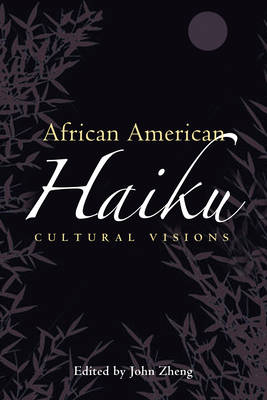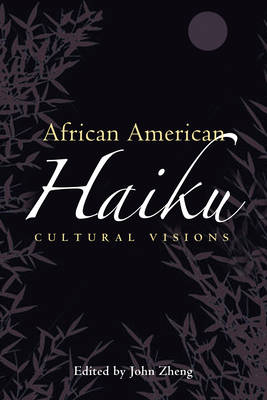
- Retrait gratuit dans votre magasin Club
- 7.000.000 titres dans notre catalogue
- Payer en toute sécurité
- Toujours un magasin près de chez vous
- Retrait gratuit dans votre magasin Club
- 7.000.0000 titres dans notre catalogue
- Payer en toute sécurité
- Toujours un magasin près de chez vous
African American Haiku
Cultural Visions
110,45 €
+ 220 points
Description
African American Haiku: Cultural Visions offers insights into African American poets' innovations in the haiku form, shedding light on a neglected aspect of black poetry. Notable scholars present new interpretations of well-known works. Essays trace the verse of five major African American haiku poets: Richard Wright, James Emanuel, Etheridge Knight, Sonia Sanchez, and Lenard D. Moore. Sachi Nakachi investigates the influence of Japanese aesthetics and Eastern philosophy on Richard Wright's haiku showing Wright's interest in the blues as poetry. Yoshinobu Hakutani analyzes the vision and affinity of jazz and haiku throughout James Emanuel's Jazz from the Haiku King. And Claude Wilkinson digs into Etheridge Knight's improvisation and adherence to tradition of haiku and African American vernacular form. The collection also explores how Sanchez creates a new American hybrid form of the modern haiku in English by blending haiku with her own principles of a black aesthetic. Toru Kiuchi shows how Lenard D. Moore expresses his experiences through haiku with his African American aesthetics and connections to black southern culture. By discussing multiple writers from a variety of disciplines in a single volume, the essayists compare and contrast the work created by writers, poets, and musicians, and illuminate the variety of methods African American authors used when adapting this traditional Japanese form. The result is a volume that offers rich insight into African American aesthetics, the black arts movement, gender issues, blues and jazz, and trends in contemporary poetry.
Spécifications
Parties prenantes
- Editeur:
Contenu
- Nombre de pages :
- 192
- Langue:
- Anglais
- Collection :
Caractéristiques
- EAN:
- 9781496803030
- Date de parution :
- 10-02-16
- Format:
- Livre relié
- Format numérique:
- Genaaid
- Dimensions :
- 152 mm x 229 mm
- Poids :
- 494 g

Les avis
Nous publions uniquement les avis qui respectent les conditions requises. Consultez nos conditions pour les avis.





